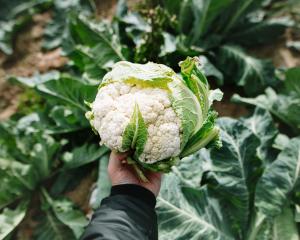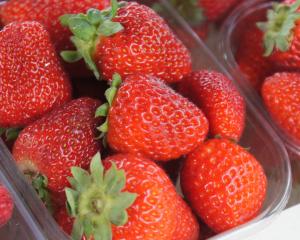One of New Zealand's most important heritage fruit and vegetable collections is under threat. Gillian Vine reports.
Around the country, you will find gardeners who save seed of old vegetables or still have fruit trees or shrubs planted by their ancestors.
On Great Barrier Island, for example, descendants of Europeans who settled there in the 19th century have assembled a collection of roses taken to the island by their great-grandmothers, and beekeeper Les Blackwell grows cupla, an edible, marrow-like gourd that a seafaring ancestor brought back more than 120 years ago.
Old fruit trees are common, too, probably reflecting the ease with which the likes of peaches grow from stones.
Closer to home, at Riverton, Southland, Robert and Robin Guyton are doing significant work saving heritage fruit trees, particularly apples, some of which were sourced in South Otago by members of the Apples South project.
Most initiatives are small, individuals saving the seed of beans their grandfather grew or the perennial lettuces seed companies do not sell.
A project that stands out for its size, though, is the Koanga Institute, credited with saving over the past 30 years more than 800 heritage vegetable varieties and 400 berry plants and fruit trees.
These have been propagated and can be bought by members, ensuring at least some of our biodiversity has survived.
Co-founded by Kay Baxter, who has worked tirelessly on the project, Koanga Institute is the largest such project in the country.
Koanga appeared to take a leap forward three years ago when it began leasing what is considered the perfect place for its work.
Unfortunately, the land at Wairoa in northern Hawkes Bay, is now for sale and if Koanga cannot raise $705,000 by the end of next month to buy the block, the entire project is likely to collapse.
Even if another suitable area could be found quickly, it would take five years to bring it to a point where high-quality seeds could be produced and moving the fruit trees would undoubtedly result in losses.
On top of that is the need to buy a second piece of land, an adjacent hill block from which comes all the water for Koanga's plants. That adds $250,000 to the bill. Again, it is urgent, as the organisation has to find that sum before the end of September.
As a result, Kay Baxter is on a mission, travelling throughout New Zealand in a fundraising quest to save the New Zealand heritage seeds at Koanga.
She is speaking in Queenstown on Wednesday, June 4, and Dunedin on Thursday, June 5, giving two talks that evening, one on the health benefits of a nutrient-dense diet, the second on seeds, humans and the process of co-evolution - a regenerative way forward.
A gardening historian, permaculture and seed-saving expert as well as the author of several books, Ms Baxter points out that in 1994 the United Nations estimated that 94% of vegetables and 85% of apple varieties had been lost since 1920.
''For 99% of the evolution of the human species, we have been in a process of co-evolution with our environment.
"During the Industrial Revolution, we stepped out of this paradigm, with the industrialisation of our food supply. This has been a disaster for human health and the health of our whole ecology,'' she says.
''It's time to step back and redesign the way forward [using] that age-old process again.''
As well as Ms Baxter's speaking tour, other fundraising initiatives include an online campaign, practical workshops, an offer of business memberships and an ''adopt a square metre, acre or hectare'' campaign.
Want to know more?
For venue details and times, or to buy a ticket, go to www.koanga.org.nz/tour.













